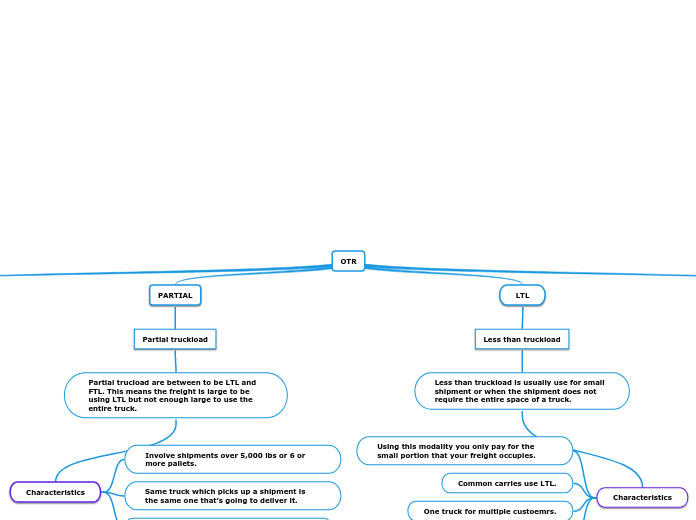by Leidy Herrera 4 years ago
592
OTR

by Leidy Herrera 4 years ago
592

More like this
Volume LTL shipments are transferred faster than regular LTL loads
Lower cost to ship
Only pays for the space the freight uses and the total weight of the shipment along the shipping lane.
Volume LTL has different size requirements and does need product crated or on pallets.
There is a rick of damage and delays for handling and stops.
One truck for multiple custoemrs.
Common carries use LTL.
Using this modality you only pay for the small portion that your freight occupies.
Reduce handling and reduce risk of damage.
Same truck which picks up a shipment is the same one that’s going to deliver it.
Involve shipments over 5,000 lbs or 6 or more pallets.
Characteristics
It is more expensive than using LTL.
Cargo has less of a propensity for damage
Transit time is shorter than other modalities.
Shipment stays in the truck from pick-up to drop-off.